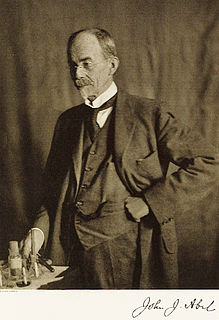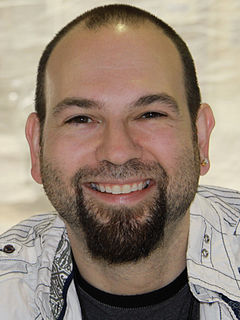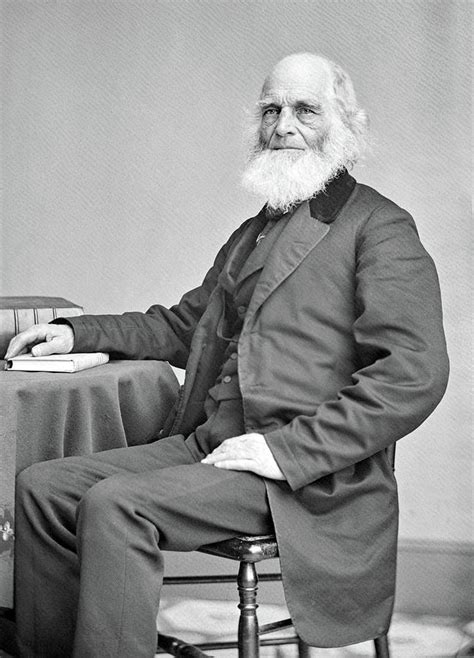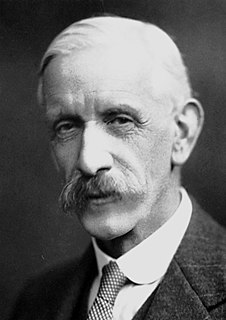Top 77 Tissues Quotes & Sayings - Page 2
Explore popular Tissues quotes.
Last updated on December 19, 2024.
The Four Horsemen whose Ride presages the end of the world are known to be Death, War, Famine, and Pestilence. But even less significant events have their own Horsemen. For example, the Four Horsemen of the Common Cold are Sniffles, Chesty, Nostril, and Lack of Tissues; the Four Horsemen whose appearance foreshadows any public holiday are Storm, Gales, Sleet, and Contra-flow.
Bog-lights, vapors of mysticism, psychic overtones, soul orgies, wailings among the shadows, weird gnosticisms, veils and tissues of words, gibbering subjectivisms, gropings and maunderings, ontological fantasies ... this is the stuff, the phantasms of hope, that fills your book shelves. Look at them, all the sad wraiths of sad mad men and passionate rebels — your Schopenhauers, your Strindbergs, your Tolstois and Nietzsches. Come. Your glass is empty. Fill and forget.
As soon as we touch the complex processes that go on in a living thing, be it plant or animal, we are at once forced to use the methods of this science [chemistry]. No longer will the microscope, the kymograph, the scalpel avail for the complete solution of the problem. For the further analysis of these phenomena which are in flux and flow, the investigator must associate himself with those who have labored in fields where molecules and atoms, rather than multicellular tissues or even unicellular organisms, are the units of study.
Our tissues change as we live: the food we eat and the air we breathe become flesh of our flesh and bone of our bone, and the momentary elements of our flesh and bone pass out of our body every day with our excreta. We are but whirlpools in a river of ever-flowing water. We are not stuff that abides, but patterns that perpetuate themselves
We know from astronomy that the universe had a beginning, from physics that the future is both open and unpredictable, from geology and paleontology that the whole of life has been a process of change and transformation. From biology we know that our tissues are not impenetrable reservoirs of vital magic, but a stunning matrix of complex wonders, ultimately explicable in terms of biochemistry and molecular biology. With such knowledge we can see, perhaps for the first time, why a Creator would have allowed our species to be fashioned by the process of evolution.
They put on fresh gloves and got back to business. Jazz wiped up the blood splatters in the freezer and tossed the tissues in with Howie’s waste. It bothered him that he was leaving evidence behind without some sort of oxygenated bleach, those blood splatters would still show up under Luminol. Of course, the odds of anyone deciding to spray down the morgue freezer and switch on an ultraviolet light were pretty minimal, so it’s not like it was evidence that anyone would ever find or use. Still: Billy Dent’s First Commandment was “Thou shalt not leave evidence.
The assumption that everything past is preserved holds good even in mental life only on condition that the organ of the mind has remained intact and that its tissues have not been damaged by trauma or inflammation. But destructive influences which can be compared to causes of illness like these are never lacking in the history of a city, even if it has had a less chequered past than Rome, and even if, like London, it has hardly ever suffered from the visitations of an enemy.
I confess to a rare problem - gynekinetophobia, or the fear of women falling on me - but this is a rather mild illness compared with many affluent suburbanites, who have developed an almost total zoophobia, or fear of anything that moves. It is, as any traveller can confirm, a complaint best developed in the affluent North American, and it seems to be part of blue toilet dyes, air fresheners, lots of paper tissues, and two showers a day.
I wondered why it had to be so poisonous. Oleanders could live through anything, they could stand heat, drought, neglect, and put out thousands of waxy blooms. So what did they need poison for? Couldn't they just be bitter? They weren't like rattlesnakes, they didn't even eat what they killed. The way she boiled it down, distilled it, like her hatred. Maybe it was a poison in the soil, something about L.A., the hatred, the callousness, something we didn't want to think about, that the plant concentrated in its tissues. Maybe it wasn't a source of poison, but just another victim.
It's a common myth that athletes and other highly active people need the protein from meat and dairy to fuel their activities and build and repair muscles and other bodily tissues. In fact, there is growing evidence that consumption of too much protein can lead to very serious health issues, including kidney disease, osteoporosis, and cancer. The active body can get all the protein it needs from a diverse, 100% plant-based diet.
But carbon 13 [the carbon from corn] doesn't lie, and researchers who have compared the isotopes in the flesh or hair of Americans to those in the same tissues of Mexicans report that it is now we in the North who are the true people of corn.... Compared to us, Mexicans today consume a far more varied carbon diet: the animals they eat still eat grass (until recently, Mexicans regarded feeding corn to livestock as a sacrilege); much of their protein comes from legumes; and they still sweeten their beverages with cane sugar. So that's us: processed corn, walking.
The summer day is closed - the sun is set:
Well they have done their office, those bright hours,
The latest of whose train goes softly out
In the red west. The green blade of the ground
Has risen, and herds have cropped it; the young twig
Has spread its plaited tissues to the sun;
Flowers of the garden and the waste have blown
And withered; seeds have fallen upon the soil,
From bursting cells, and in their graves await
Their resurrection. Insects from the pools
Have filled the air awhile with humming wings,
That now are still for ever; painted moths
Have wandered the blue sky, and died again
As a progressive discipline [biochemistry] belongs to the present century. From the experimental physiologists of the last century it obtained a charter, and, from a few pioneers of its own, a promise of success; but for the furtherance of its essential aim that century left it but a small inheritance of facts and methods. By its essential or ultimate aim I myself mean an adequate and acceptable description of molecular dynamics in living cells and tissues.
The most alarming of all man's assaults upon the environment is the contamination of air, earth, rivers, and sea with dangerous and even lethal materials. This pollution is for the most part irrecoverable; the chain of evil it initiates not only in the world that must support life but in living tissues is for the most part irreversible. In this now universal contamination of the environment, chemicals are the sinister and little-recognized partners of radiation in changing the very nature of the world-the very nature of its life.
A study of over 10,000 patients shows clearly that chemo's supposedly strong track record with Hodgkin's disease (lymphoma) is actually a lie. Patients who underwent chemo were 14 times more likely to develop leukemia and 6 times more likely to develop cancers of the bones, joints, and soft tissues than those patients who did not undergo chemotherapy .
Beyond natural history Other biological sciences take up the study at other levels of organization: dissecting the individual into organs and tissues and seeing how these work together, as in physiology; reaching down still further to the level of cells, as in cytology; and reaching the final biological level with the study of living molecules and their interactions, as in biochemistry. No one of these levels can be considered as more important than any other.
And what are you doing here, Nicholas? Decided to watch me sleep?" "Yes," said Nick, and bowed is head over his sword again. He had tissues, oil, and sandpaper laid out on the windowsill in front of him, and a little stone block he was passing his sword up and down, very carefully. "I came to gaze upon your sleeping face. Only you had the blanket over your head, so I just had to gaze at a lump I thought was your sleeping face, and that turned out to be your shoulder. Which just wasn't as special." ~Nick and Mae
















